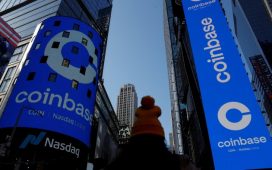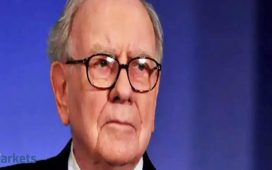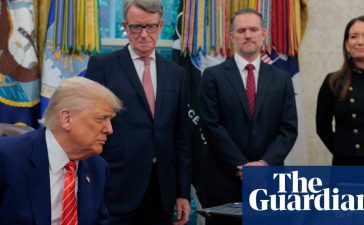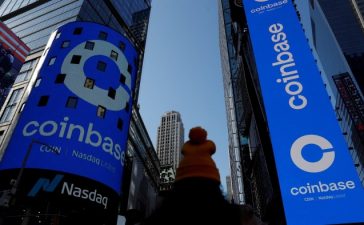Politics makes the headlines, but it is interest rates that shift the economics. That’s the conclusion to be drawn from the past few days.
Even the least observant of us will be aware that there is a General Election coming up, and there seems to be quite a lot of political stuff going on in America too.
Yet the thing that clobbered the markets last week was the prospect that interest rates might come down a little more slowly than previously expected.

Spare us: We need more competence and less ideology from politicians, Hamish McRae says
It is ridiculous, if you think about it, that it should matter whether central banks should make two cuts or three in rates this year, or whether they should start in June or September.
On the other hand, which politicians end up running the show does matter quite a lot. So what’s up?
The first part of the explanation is that politics generally affect the economy over the very long term, whereas the cost of money has an immediate impact on it.
You can see that in the UK.
The market reforms of Margaret Thatcher’s successive governments lifted economic performance right through to the banking crash of 2008-9, but for the early years of that period the costs were as evident as the benefits.
The negative effect of Gordon Brown’s tax raid on pension funds, and the changes in pension regulation, did not become really evident for a decade or more.
By contrast, when in early 2021 the central banks failed to jack up interest rates fast enough, it took only a matter of months for the world to experience the worst burst of inflation for 40 years.
But it is not simply a short-term versus long-term thing. It is also that politics are local, whereas the price of money is global.
So a different government in the UK can fiddle with tax and spending, and bring in different regulations.
But it cannot change the rate it has to pay for financing the National Debt, because that is set by global markets.
At best, it can have modest influence over that, by following policies markets approve of – or the opposite, as Liz Truss tried to do. It can’t do much about mortgage rates, or demand for exports.
UK growth does seem to be picking up quite well this year, but that is thanks in part to a wider global recovery and in part to falling inflation worldwide.
The similarities between the different economic regions are much more marked than the differences.
You can see this best by looking at inflation. The UK peak of 11.1 per cent was indeed a bit above the US at 9.1 per cent and the Eurozone at 10.6 per cent.
But all were catastrophically higher than the target of 2 per cent, and our most recent number of 2.3 per cent is below the US at 3.4 per cent and Europe at 2.6 per cent.
It is the difficulty in getting inflation back on target that makes central banks hesitant to cut rates. We are all in the same boat.
That said, there are reasons to think the next three or four years will be modestly successful for the economy.
There is a global cycle from which we are unable to escape. But, and this is important, we are in the middle of the growth phase of that cycle.
The pandemic disrupted everything, turning what was probably going to be a mild downturn into a chaotic period.

Tough decisions: It is the difficulty in getting inflation back on target that makes central banks hesitant to cut rates
But since then there has been a decent recovery, albeit one disrupted by the surge in inflation.
There was a pause here and in parts of Europe last year, but you often get hiccups like that. The US economy has had a great run, but growth has slowed recently and may dip further.
Every economic cycle is different. Do remember that. But stand back from the detail and there is a decent chance that the world economy will continue growing through to the late 2020s.
The task of the next government is to take advantage of this growth period to fix public finances, simplify regulation, encourage personal saving, improve its own services, and so on.
More competence please, and less ideology.
Some links in this article may be affiliate links. If you click on them we may earn a small commission. That helps us fund This Is Money, and keep it free to use. We do not write articles to promote products. We do not allow any commercial relationship to affect our editorial independence.










